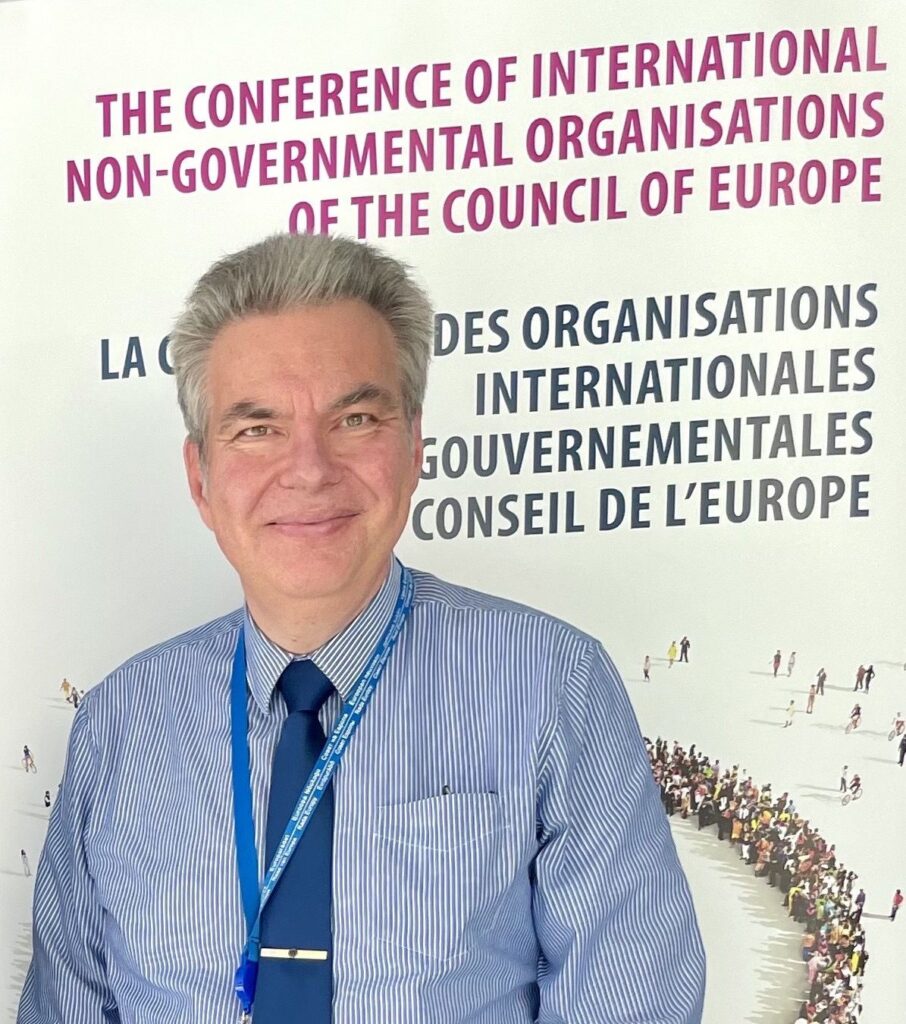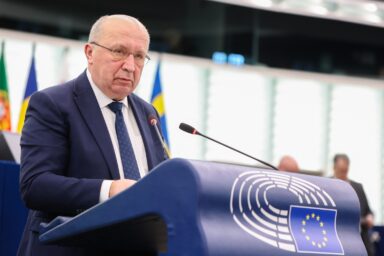In a time of rising authoritarianism and mounting attacks on democratic participation, Gerhard Ermischer, President of the Conference of International Non-Governmental Organisations (INGOs) of the Council of Europe, warns that Europe must urgently rethink its approach to civil society.
Speaking to EUPerspectives, Mr Ermischer highlighted the EU’s tendency toward formalistic, ’box-ticking’ participatory processes. In his opinion, such approach fails to give citizens real influence. And far-right narratives increasingly undermine the legitimacy of independent civil voices.
Mr Ermischer, what is, in your opinion, the EU’s current strategy for civil society?
Most participatory processes have to be organized at national, regional, and local level. The EU sets rules and frameworks. Their implementation, however, can be extremely formalistic and reduced to a ’ticking the box’ logic—with no real chance of influencing the outcome of the process. Here we need better monitoring and evaluation of these processes, which affect everyday life. This is an area where we (from the Conference of INGOs) believe that stronger cooperation between the EU and the Council of Europe (CoE) can be useful. The Council already has many tools to ensure a good participatory process at all levels of governance, which could and should be better applied.
You might be interested
We also need empowerment strategies, both for administrations and for civil society, at all levels. That would allow us to better understand the needs and mechanisms of these processes. Again, the CoE has already developed and tested good tools for such processes. However, it has very limited means to implement them on a large scale across Europe.

Today, we must not only talk about how to improve existing participatory mechanisms. How to make them meaningful and well-structured so they can speed up necessary transformation processes instead of slowing them down. We need to talk about defending our democracy, civil society, and civic participation. Even about defending the physical integrity of human rights defenders (or substitute with civil rights, environmental rights, social rights…).
Is the Council of Europe concerned about a ’rightward shift’ in the EU? Is it real?
As a historian, I am aware of the waves we experience in history. After the pendulum had swung towards the liberal side (or left side, as it is now called), it is now swinging forcefully to the other side. This is frightening, as the parallels with the early 20th century are so blatantly visible.
We need to talk about defending our democracy, civil society, and civic participation. — Gerhard Ermischer, President of the Conference of International Non-Governmental Organisations
In this context, a new strategy for civil society in the EU is desperately needed. The EU has a number of possibilities for civil society organizations and citizens to participate in decision-making processes. But for the most part, these are rather formalistic, or civil society organizations have to undergo a very competitive process to become members of different participatory bodies. That can also make the processes quite selective.
What remains the strength of civil society today?
We already have many monitoring mechanisms, early warning systems for journalists in the CoE, so to a certain extent these mechanisms could be better coordinated and integrated. But all the early warning mechanisms are rather useless if they do not lead to a strong and robust reaction.
Here again we see the need for closer cooperation between the EU and the CoE, since the CoE has good monitoring mechanisms and well-developed standards. However, it lacks the means to generate such robust reactions. And these are needed not only for EU member states but for all CoE member states. Including those in the process of EU accession. Today this also includes the relocation of people who are in real danger in their home countries.
What does the EU need most right now?
We need a strategy to counter the wave of anti-democratic propaganda in tabloids and social media. All this has developed so quickly and become so massive and disruptive. In this regard, some of the comments made during today’s meeting were more than chilling, especially from far-right MEPs, whose attacks on civil society and EU institutions mirrored Trumpist propaganda point for point. Attacks on the financing of civil society organizations, contracts, and grants were also all thrown into one pot and declared as payments for pro-EU/Commission leftist propaganda and a waste of taxpayers’ money.
The anti-democratic propaganda in tabloids and social media has developed quickly and become massive and disruptive. — Gerhard Ermischer, President of the Conference of International Non-Governmental Organisations
All this reflects what is happening in the United States right now. It is a direct attack on independent civil society voices, questioning their democratic legitimacy and portraying civil society as an undemocratic force of evil. One could therefore say that these new strategies come (too) late, at a time when we are already on the defensive. This certainly makes the process more difficult, but also extremely necessary.











